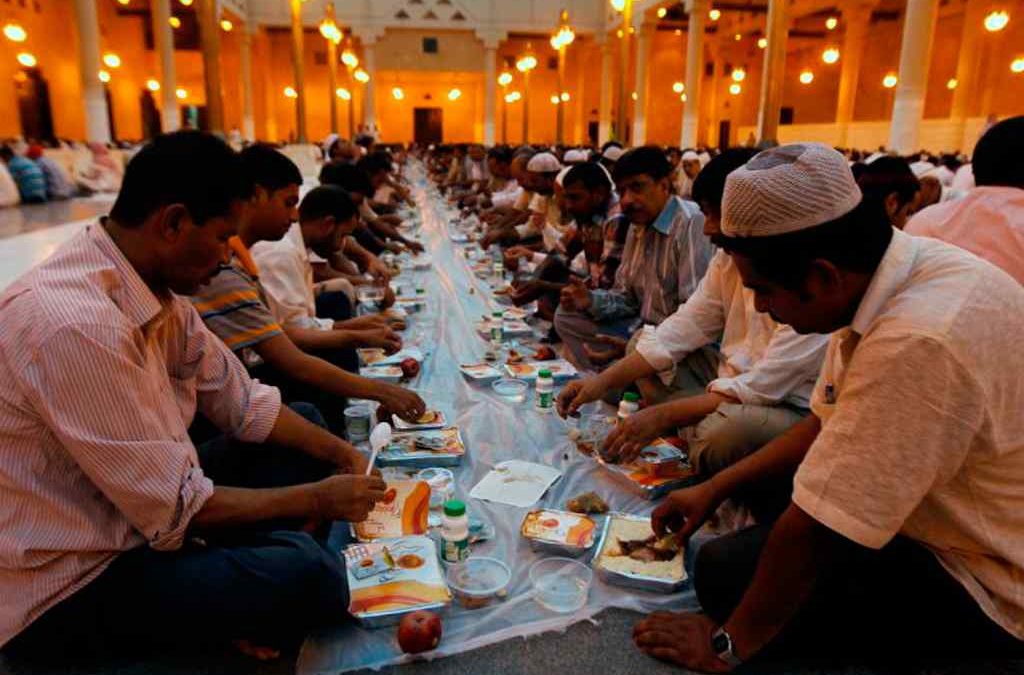Fasting during the ninth lunar month of Ramadan is one of the best-known of the prescribed practices in Islam and the forth pillar of Islam. The Arabic term for ‘fasting’ is sawm.
The practice is outwardly reflected in an abstention from food or drink between the hours of sunrise and sunset. Fasting comes to an end with the ‘Eid al Fitr’ (the canonical feast of fast breaking) at the end of the month.
The Quran prescribes fasting for new community just as fasting had been prescribed for those that became before-that is the Christians. However, fasting in Ramadan is made distract by its length and time. The importance of the month of Ramadan is not just in fasting. This is also the month in which the’ Quran was sent down, a dear guidance for humankind’:
The month of Ramadan [is that] in which was revealed the Quran a guidance for the people and clear proofs of guidance and criticize, so whoever is ill or on journey- then an equal number of other days. Allah intends for you ease and does not intend for you hardship and [wants] for you to complete the period and to glorify Allah for that [to] which He was guided you: and perhaps you will be grateful.
The Muslim who is fasting should also abstain from sexual relations during these hours and anything else that might lead to breaking the fast. A fast that is broken unintentionally and remains a fast, but there are various forms of expiation for intentionally breaking the fast.
Categories of people who are exempt from fasting include women during menstruation, pregnancy or immediately after child birth, travellers, the infirm and the sick. Although most Muslim families encourage young children to keep some of the fasts, it is not a requirement and there should be no coercion.
Religious Reflection
The paradox of Ramadan is that, although fasting can be difficult, and a genuine test for many, the month itself is a month of celebration and joy, for this is when the Quran was revealed.
Both day and night are sacred times for a heightened worship and increased gratitude for the blessings in one’s life. In Muslim countries, working hours are modified to accommodate fasting requirements in order to enable those fasting to continue working.
People often slow down daily activities to devote more time to religious reflection and many will go on a spiritual retreat (I’itikaf), which involves spending day and night in prayer and worship in a local mosque. Very often mosques have nightly readings of the Quran which results in a complete recitation of the Quran over 30 days. Many Muslims attend mosques more regularly during Ramadan and perform special prayers called tarawih, which is voluntary, not obligatory.
When it is time to break the fast at sunset, for Maghrib prayers, families often meet and share food. This evening meal is known as iftar. The prophet is said to have broken his fast with two dates and water before praying, so most Muslims continue to open their meal with dates.
It is difficult for non-Muslim to recognize these aspects of Ramadan, as the whole ritual is largely equated with self-denial as a means of self-purification
Accommodating the Fast
Because Muslims observes the Islamic calendar, fasting moves through the seasons, occurring some 15 days earlier each year. In recent year many Muslims have questioned whether the practice of fasting can be changed during long summer months, when the sunsets very late.
Similarly, new legal guidelines have emerged for those Muslims living in two Polar Regions where there is either continuous day light or continuous darkness for some months. Furthermore, as more and more Muslims settle in the west, how can they reconcile the demands of fasting with the responsibilities of the workplace-can there be some form of concessions or exemptions?
There are different challenges that have been met with a wide variety of humane responses to ease the demand of fasting in of these countries. For example, some religious scholars advocate observing fasting hours according to the closest Muslim country or, if a person cannot fast for long hours, that male up the fast when it became easier.
However, there is no consensus on these issues and Muslims often fellow the recommendations or practices of their local mosques or communities.
Voluntary Fasts
While fasting during Ramadan is obligatory, there are also voluntary fasts one can keep. Voluntary fasting is recommended on the day of Ashura, the tenth day of the month of Muharram. Fasting however, also has a certain redemptive effect so that one can keep a fast or several fasts. As an act of penance (kaffara) for any transgressions or sins.
The Quran itself mentions several occasions on which one should observe an atoning fast alongside other atoning recommendations, such as freeing a slave or seeking repentance.
Many of the prophetic hadiths refer to fasting as a ritual most precious to God. This is because fasting is difficult: it requires discipline and it is done primarily for love of God. According to Bukhari:
The prophet said, ‘by him in whose hands my soul is, the smell coming out from the mouth of the fasting person is better in the sight of Allah than the smell of the musk.
[Allah says about the fasting person].
“He has left his food , drink and desires for my sake. The fast is for me. So I will reward (the fasting person) for it and the reward of good deeds is multiplied ten times”.

